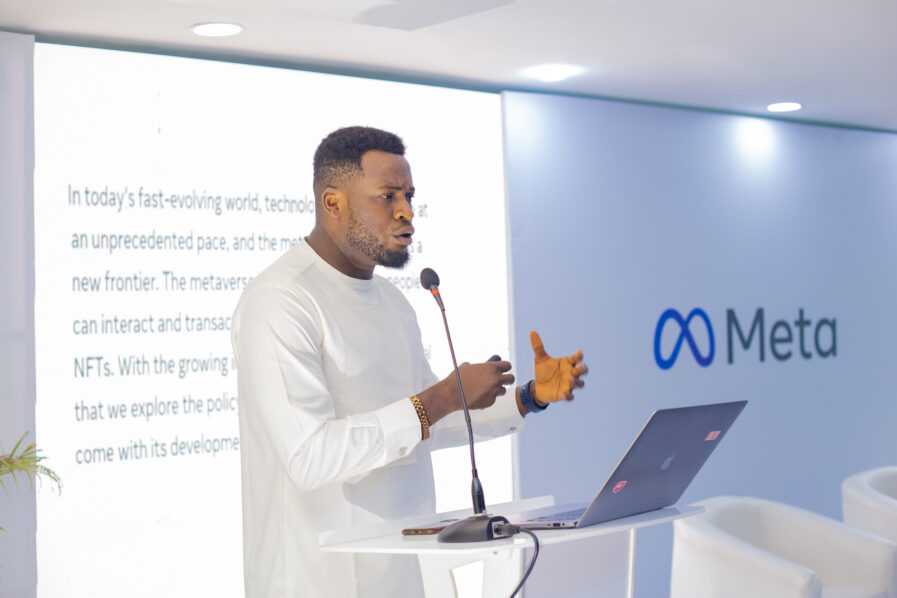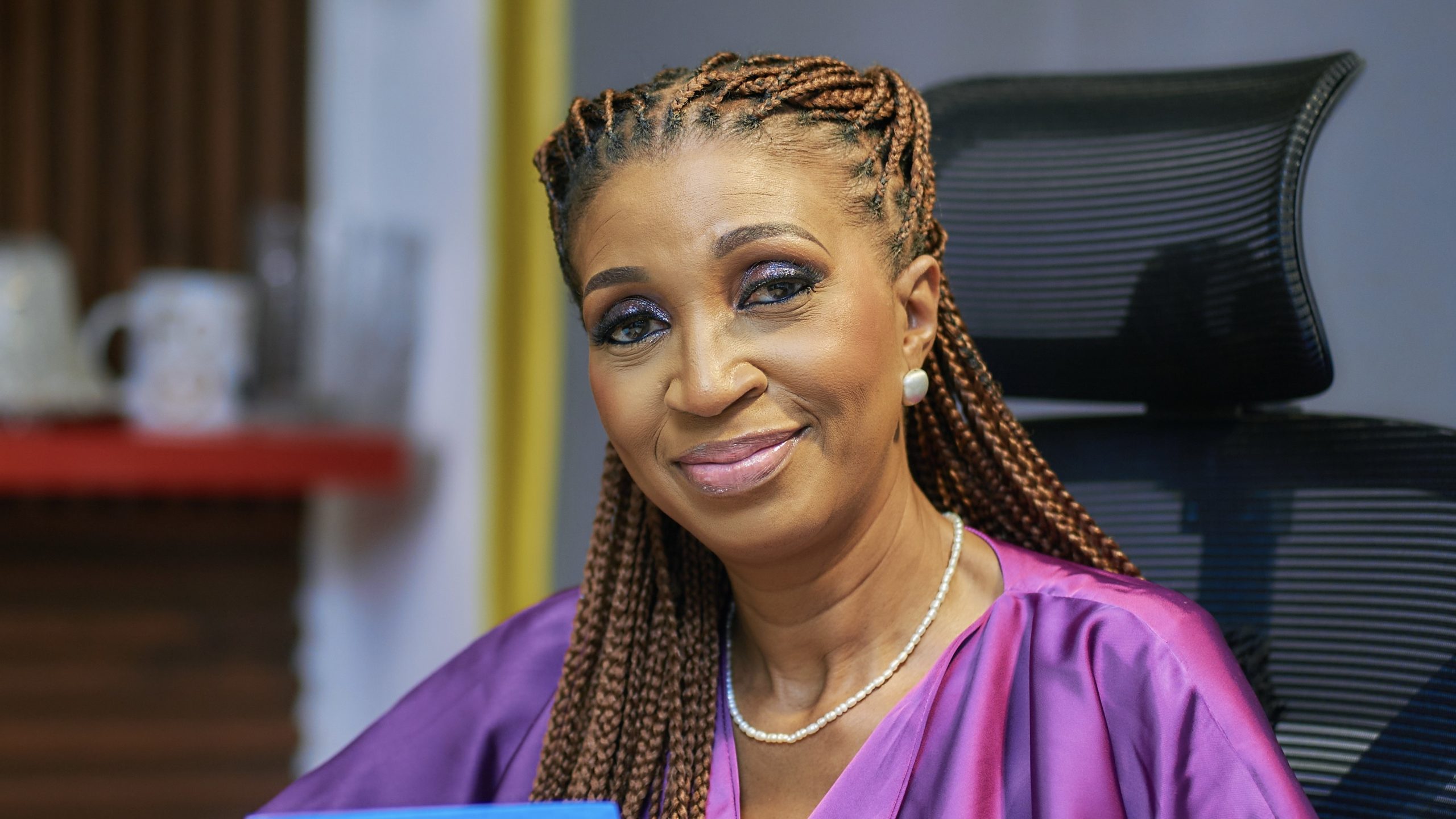
Over the last five years, how Nigerians use the internet, what they can say on the internet, and what they cannot say on the internet has attracted increased attention from the populace and the government. Ebuka Ogbodo has been thinking about all of those things for even longer. “He has been one of the most consequential minds in Nigeria’s tech policy space for about a decade,” says a former colleague who knew Ogbodo back as a Google Policy Fellow.
For Ogbodo, who is currently studying for a Master of Laws at Harvard, the situation is quite simple. “The ethical implications of AI development and regulation in Africa are complex and multifaceted.”.
“We’re not just talking about privacy concerns or job displacement. We’re dealing with issues of data sovereignty, algorithmic bias that could exacerbate existing inequalities, and the potential for AI to be used as a tool for targeted surveillance and oppression.
“Africa needs to develop robust ethical frameworks that are relevant to its own unique challenges. It is crucial that we understand that we cannot depend on foreign powers to do that for us.”
***
Although he has been thinking about these issues far longer than most people, Ogbodo wasn’t born with a microchip in his mouth. In fact, to hear him tell it, the man who has played quite a significant part in Nigeria’s digital policy had distinctly traditional circumstances surrounding his birth. Superstitious accusations, the fearful possibility of banishment, rumours of stillbirth, and, finally, the triumphal birth of twins. It could one day be the basis of a film. “I agree,” he says on a call from the US.
Of course, the setting for the drama of his birth was far from the halls of Wasserstein Hall, where he now resides. A producer seeking verisimilitude would need to visit Eha-Alumona, one of the most rural areas of one of the most rural southern states of mid-1990s Nigeria.
The principal figures in the story are his mother, his wealthy polygamous father, and a clan of relations intent on “protecting” their successful brother from the machinations of one of his wives, the one they claimed had a hand in the death of her stepson. After months of wrangling, the matter would be resolved by the unlikely birth of Ogbodo and his twin sister at the hands of a nurse who turned out to be a distant relative of the children’s father. It is a complex story that would perhaps be better served as a series.
Ogbodo would move to Lagos a few years after the death of his twin. The idea was a short visit but the person he had come to visit, his mother’s brother, would put him in school and a teacher would notice the bright boy in class and try to convince his uncle to allow the boy to stay in Lagos.
Despite his uncle’s reluctance, given the agreement with his sister, somehow, the boy was allowed to stay back in Lagos.
The city was good to him from the start. He dominated his class academically and, well, romantically. He was falling in love with everybody and getting into trouble—both of which inevitably proved problematic. One option available was to ship his nephew back to the village but that represented backwardness. Fortunately for all concerned, his uncle decided to enrol the kid in a nearby computer school in Ketu. It was there that Ogbodo’s journey truly began.
Despite minimal prior exposure to computers, Ogbodo finished as the top student in his cohort. He was invited to teach at the school. “In my decades of experience in computer education, I have never encountered a student with the natural aptitude, drive, and innate potential that Ebuka demonstrated and continues to demonstrate,” says Eze Ifeanyi, the founder of Linez Royal Computer School. He has managed to stay in touch with this star pupil over the years.
By secondary school, the period many kids begin to develop a concept of the future, Ogbodo was playing with the idea of becoming an astronaut. Even now, he is not quite sure why. His teacher suggested that he chose law instead. He doesn’t say why his teacher thought he would make a good lawyer but it is an easy guess: the adult Ogbodo is eloquent and likes to talk. He probably wasn’t much different as a kid.
Still, he demurred. He wasn’t interested in being a lawyer—at least not for some time. He would come to see that she was correct through an unlikely source: a novel published two years before he was born.
***
John Grisham was already a big name by 1995, the year of Ogbodo’s birth, and it was his fourth novel, The Client, released in 1993, that did the trick. The novel follows a kid who discovers a man committing suicide and then gets swept into a legal case involving a criminal organisation. Reggie Love, a lawyer played by Susan Sarandon in the 1994 film adaptation, protects the child.
Weirdly, it is the adult Reggie Love, rather than the brave child, that miles away in Nigeria, Ogbodo identified with. As he turned the book’s last page, it was clear that he would be a lawyer. “I think I felt a need to be in the position to help someone who’s as helpless as the child was,” he says now.
The exams to get into university were easy enough. Ogbodo got into the University of Nigeria Nsukka as a teenager and was determined to leave with a first class. He was, after all, the first person in his immediate family to go to college and was eager to prove he could succeed there at the highest level.
As it happened, fate intervened with something even better.
In school, pop culture continued to play a part in shaping who Ogbodo would become. First, it was Boston Legal, a legal series featuring William Shatner and James Spader playing lawyers with loose morals and sharp mouths. Even now, one can see the allure those characters held for an impressionable young man. The Good Wife, another series, featuring Julia Margulies as a defence attorney, would be just as relevant in shaping the law student—at least in theory.
In real life, one of the most significant events that would shape Ogbodo’s future came in his second year. While working at a bakeshop to raise funds to support himself in school, he saw an ad for the Unilever Campus Ambassador Programme. He applied. He got accepted. It changed his life.
“It was like a dream and it was happening in my second year,” he says of the opportunities the programme presented. But before getting on his first flight to attend the inaugural ambassadors convening in Lagos, he sent in an application to Banwo & Ighodalo, one of Nigeria’s top law firms. On the last day of the conference, an email from B&I came in. It was a congratulatory message.
It was during that internship that Ogbodo got chosen for a Google Policy Fellowship, an opportunity generally not given to people who are yet to get a tertiary degree. “I only applied because a senior colleague at B&I said I should,” he says. “She said I shouldn’t be scared of failure, that it’s merely the price of ambition, besides the application is free.”
The great theme of his life—daring to hope—continued. He got the fellowship as the first undergraduate grantee in Africa and was sent to work in Abuja with the Paradigm Initiative, a technology policy think tank. While there, he was involved in drafting the Digital Rights and Freedom Bill and played a role in the stakeholders’ advocacy efforts around Nigeria’s Cybercrime Act.
It was at this point that Ogbodo, who was always one of those “actively online” individuals started to think critically about Nigeria’s digital future. “Empire’s promise of industrialisation stripped Africa and left it behind,” he observes. “Now we’re trying to catch up in a rapidly evolving,post-globalised digital world where the old rules no longer apply. My time as a Google fellow opened my eyes to the fact that we’re in the midst of another profound transformation, and we need to be better prepared.”
Ogbodo’s understanding of the internet evolved beyond mere usage to a deeper comprehension of its intersection with law and society. “I realised that the digital divide isn’t just about access to technology,” he explains. “It’s about who gets to shape the digital world we’re all increasingly inhabiting and relying on. If we don’t have diverse voices at the table—regardless of sex, gender identity, rural or urban dwelling, or physical ability—we’re not just missing out on talent. We’re missing an opportunity to weave the rich tapestry of our nation into the fabric of technological progress.”
Like many forward-thinking young people, Ogbodo sought to answer a crucial question: How do I get involved at a high level with digital technology? While some sought to build lives online or learn coding, Ogbodo’s path was clear. “I needed to work at an organisation that presented an opportunity to combine tech with the law,” he says. “I needed to get very close to see how it would work and if it wasn’t working yet, I needed to be involved in building the framework for how it would work.”
It wasn’t until 2019 that he would finally see what he was looking for, at which point he had graduated. But before then, he would graduate without the first class he wanted because, of course, the opportunities he continued to attract took him away from school. In 2017, he graduated with second-class honours, upper division, rounding up with an internship with Aluko & Oyebode, a graduate internship at B&I, and then a stint at PwC before heading to Law School.
***
The Nigerian Law School Bar Exam is a notoriously rigorous exam. This meant that graduating alone would have been an achievement, given the 35 per cent failure announced by the director-general of the Nigerian Law School just last year. But Ogbodo wanted more. “I started reading before the first day of class,” he says. “And I continued reading until the last day of Law School.”
It paid off. He finished with a first class in Law School with received awards for academic excellence. Now came the time to choose a firm. Ogbodo had his own criterion. It was not enough that a firm be a top firm, it also needed to have a conspicuous interest in technology. “That was how I ended up at Templars Law,” he says.
Accounts of some of Ogbodo’s work at the firm can be found online even now. He joined in 2019 and in months was working on some of the most market-defining deals with figures he could not have conceived of as a young boy growing up in Eha-Alumona Nsukka.
He was a key member of the Templars team on a deal with financing that crept to $1.3bn as covered by CNN. A $3bn deal involving the Nigeria LNG Limited sharpened his legal chops. But, as he says, these arrangements were not quite as exciting to him as the ones that involved acting in an advisory capacity to some of the world’s leading tech companies like Google, Apple, and Amazon Web Services. On those deals, he actualised his dream of working at the intersection of technology, law and policy.
Viewed through the lens of Ogbodo’s real-world success, that he did not get a first class as an undergraduate raises a question: Are we overlooking talented individuals who may not fit the conventional mould of academic excellence? Perhaps it’s time for our education system to place greater emphasis on practical skills, innovative thinking, and the ability to seize opportunities.
A year after joining Templars, Ogbodo got a chance to work directly in tech, when he got a job with Meta (formerly Facebook) as Public Policy Manager. There, he worked on the company’s policy strategy for Africa, leading policy engagements across Africa, Europe, and North America. “Ebuka was quite interested in how digital policy affects all of us and this was before AI started becoming a thing we are all worried about,” says Fatu Ogwuche, who met Ogbodo towards the start of his time at the American company.
This experience proved invaluable when Ogbodo was invited to be part of the Expert Working Group co-drafting Nigeria’s recent National Artificial Intelligence Strategy. “Being able to bring insights from both the corporate world and civil society to the table was crucial,” he says. “It allowed us to craft policies that were not just theoretically sound, but practically implementable.”
Ogbodo left Meta and took a job at the Bill and Melinda Gates Foundation (directly under Public Digital) in 2023, where he worked on constructing a policy framework that established Nigeria’s first subnational digital and data agency.
Considering his work since the Google Policy Fellowship, it is not a surprise that Harvard offered a fully-funded scholarship. Naturally, the degree is focused on technology and AI policy.
And yet, one must ask what exactly does a country still battling with irregular power supply, an unstable currency, and stark poverty have to do with the spectre of Artificial Intelligence? Why should Ogbodo’s home country stretch its hands towards the abstract when the mundane has yet to be fully grasped?
The response comes readily. “If we don’t decide our digital future, and in the precise way it involves Artificial Intelligence, someone else will do it for us.”
“Not many people are aware that we are already involved in the business of AI. Some of the Large Language Models in operation today were built with the assistance of young people in East Africa. So, we are already involved. Our involvement just needs structure, some of which must be provided by both industry and civil society, in collaboration with the government.
“As I said earlier, we missed the industrial revolution. We shouldn’t miss deciding our place in the future that will happen whether we fix our electrical power problems or not. We can wait but with the speed at which AI development is moving, we will be too late.”
Can we expect some assistance from a person who has left Nigeria? There’s laughter for what seems like the first time since our interview started. “Of course,” is the response. “It is part of the reason why I am here at Harvard.”






